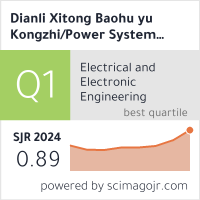DESIGN AND DEVELOPMENT OF A FUZZY FOURIER FIBONACCI (FFF)-BASED AI SOFTWARE MODULE FOR FUEL CONSUMPTION PREDICTION AT LIQUID FUEL STATIONS: ENHANCING IRAN’S ENERGY SECURITY
Abstract
This study presents the design and development of an AI-based software module for predicting fuel consumption at liquid fuel stations in Iran, with the aim of strengthening the availability dimension of national energy security. Iran currently consumes over 110 million liters of gasoline per day, with an annual growth rate of about 4.5%, making accurate forecasting essential for sustainable energy management. The study evaluates several forecasting models, including ARIMA, LSTM, CNN, and hybrid approaches, and introduces a novel Fuzzy Fourier Fibonacci (FFF) model. The FFF model, which integrates Fourier Transform, Fuzzy Logic, and the Fibonacci Sequence, demonstrates superior predictive performance, achieving an RMSE of 0.045, MAE of 0.035, and R² of 0.98. In comparison, traditional ARIMA models produced an RMSE of 0.085 and R² of 0.89. These results show that the FFF model more effectively captures both linear and non-linear patterns in consumption data. By enabling more precise forecasts, the proposed module can help optimize distribution across more than 4,000 fuel stations nationwide, reducing shortages and improving reliability. Although renewable energy sources are expanding globally, fossil fuels remain dominant in transportation, making advanced forecasting tools crucial. The proposed AI-driven module offers not only a practical solution for Iran but also a scalable framework for other regions facing similar energy security challenges.





